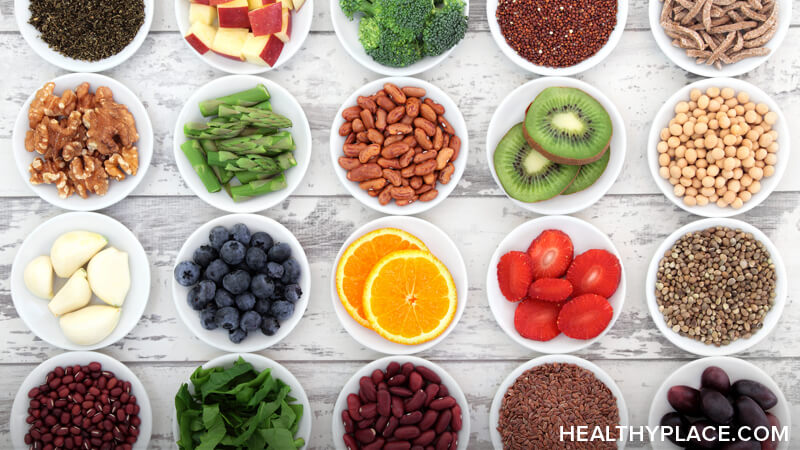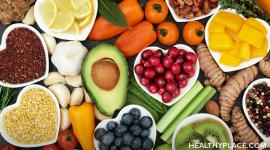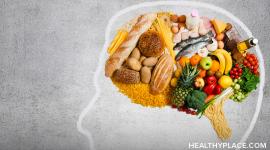What are the Best Foods for Your Mental Health?

The best foods for mental health not only improve your mood, but they may also reduce mental health symptoms in such illnesses as depression, anxiety, ADHD and others.
When you consider the best foods for your mental health, keep in mind that having a positive effect on mental health isn’t as simple as eating something you like or satisfying a craving and feeling good about it. True, those things can feel good in the moment, but in the broader picture, the kinds of foods you eat can have an effect on your mental health, for better or for worse. So the question stands: what foods are good for mental health?
Good Food for Mental Health and Wellness
There are a few things to consider when seeking out the best foods for mental health: a variety of organic, nutrient-rich, unprocessed, low sugar and low-fat foods are said to produce the best results. This goes for the kinds of drinks we consume as well. While the sugary stuff may feel like it’s having a positive effect at the moment, that famed sugar high quickly fades and doesn’t leave that long-lasting positive mental state that people seek.
Eating foods that have the nutrients needed to balance a human body and mind will not only contribute to you putting a big checkmark in the physically healthy section of your chart but also one in the mentally healthy section as well. Since food has an effect on mood and mood has an effect on mental health, paying attention to what kinds of foods affect your mood can help with the overall improvement of mental health.
The best foods for mental health wellness have a number of common vitamins, amino acids, proteins, and other parts to their makeup. For instance,
- foods that have B vitamins are thought to combat depressive states and irritability. Foods that are high in B vitamins include liver, fresh orange juice, milk, cheese, poultry, and red meat.
- iron can potentially help by contributing to the production of brain chemicals that regulate mood (emotional behaviors). Iron-rich foods include meat, nuts and seeds, dried fruits (prunes, raisins, apricots), and iron-fortified bread and breakfast cereals.
- Probiotics, such as miso, yogurt, sauerkraut, and kimchi can help with the body’s absorption of various nutrients needed for a healthy lifestyle.
A few examples of other good foods for mental health are salmon, eggs, and collard greens. Each of these has a lot of nutritional value that can also contribute to bettering your mental health overall (more on nutrition and mental health).
Your Mental Health May Suffer Without Good Foods
Deficiencies in these areas can contribute not just to poor moods but also mental illnesses such as depression and anxiety. Getting the right variety and amounts of these kinds of foods will allow the body to get the nutrients it needs in order to be properly balanced, including stabilizing mood and brain functionality.
Thinking that you’ll just take a supplement instead might seem like the easy route, but some of these are only found in foods or best brought into the body by food. So while supplements can be a great addition, they shouldn’t be the only source you’re using to get the vitamins and nutrients your body needs.
Consulting your doctor or a nutritionist can help you figure out what you might need to be eating more of. Using a food and mood diary is also a beneficial tool in learning how your body reacts to different foods and how they affect your mental health overall. Doing this can help you develop a plan to get on track to achieving better mental health and wellbeing.
APA Reference
Barton, L.
(2021, December 30). What are the Best Foods for Your Mental Health?, HealthyPlace. Retrieved
on 2025, November 29 from https://www.healthyplace.com/self-help/food-mental-health/what-are-best-foods-your-mental-health



